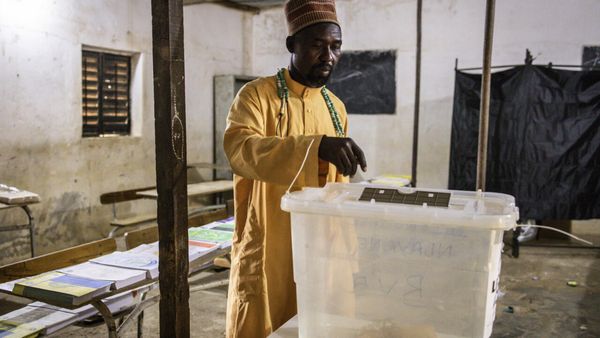Even in states where legal recreational cannabis is popular there still exists NIMBY attitudes.
The phrase "not in my back yard" has derailed more than a few government initiatives at the local level
Take Maine for instance.
The Pine Tree State was early to the recreational cannabis party, legalizing the drug in November 2016,
Even still, the state was forced to offer towns money to approve dispensaries in their neighborhoods. The state said 93% of its towns don't have dispensaries.
So Maine set aside up to $20,000 per municipality that chooses to opt into Maine's Adult Use Cannabis Program.
“The reality is, no matter if a town has opted in or not there is cannabis being bought, sold, and consumed there," said Erik Gundersen, director of Maine's Office of Cannabis Policy.
But there's an even deeper benefit to having cannabis dispensaries in your neighborhood, according to a new study from Rutgers.

Getty Images
Dispensaries Effect on Housing Market
There's a positive association between the decision to allow cannabis-related businesses in a neighborhood and that neighborhood's home prices, according to a study authored by Rutgers Associate Professor Michael Hayes and Ph.D. student Prakash Kandel.
The study found that the average home sale price increased by 1.6% in municipalities that allowed cannabis-related businesses. That increase is equivalent to a $6,366 increase for the average property in the study data.
New Jersey cities that were most likely to allow cannabis-related businesses in their jurisdictions are those with larger populations, lower property values per capita, less affluent residents, and more liberal residents, according to the study.
By the fall of 2021, it was clear that New Jersey would have some of the same problems that Maine has with distributing dispensaries.
More than 60% of all New Jersey municipalities voted to ban local cannabis-related businesses in their towns.
Cannabis sales brought in $4.6 million in tax revenue in the second quarter for New Jersey, and there are signs that there's at least a positive correlation between cannabis-related businesses and home prices, but that doesn't mean the industry is without issues.
"There is also uncertainty around potential social costs that the new cannabis industry might cause, including the potential for an increase in crime and traffic accidents," the study said.
But there is also evidence that opposition softens over time as more than 33% of municipalities that allowed cannabis-related businesses had at least one neighboring municipality that also opted in.
New Jersey's Tax Trajectory
New Jersey opened its recreational cannabis market on April 12, a couple weeks after New Mexico.
During the first 10 weeks of the program, the state brought in $4.6 million in state tax revenue on nearly $80 million in legal recreational cannabis sales between April 21 and June 30, the state reported.
New Jersey approved a "social equity excise" tax of $1.10 per ounce of cannabis sold. That tax alone is expected to generate $225,000 before the end of the year.
By law, 15% of the generated revenue, or $33,750 based on estimates, is required to be allocated to underage deterrence and prevention programs.
For the second quarter, New Jersey saw cannabis recreational sales of nearly $80 million. Combined with medical cannabis sales, the state reported total cannabis sales of nearly $140 million in the quarter.
New Jersey has 18 dispensaries across the state and the state's Cannabis Regulatory Commission has issued another 140 conditional weed dispensary licenses. But no new ones have opened from those licenses, the New Jersey Monitor reported.
"The market is improving. It is performing as we expect with the current number of dispensaries, the spread of locations, and the high prices," CRC Executive Director Jeff Brown said, according to App.
“As more cannabis businesses come online, consumers won’t have to travel as far to make purchases, and prices will fall with increased competition. The market will do even better.”







